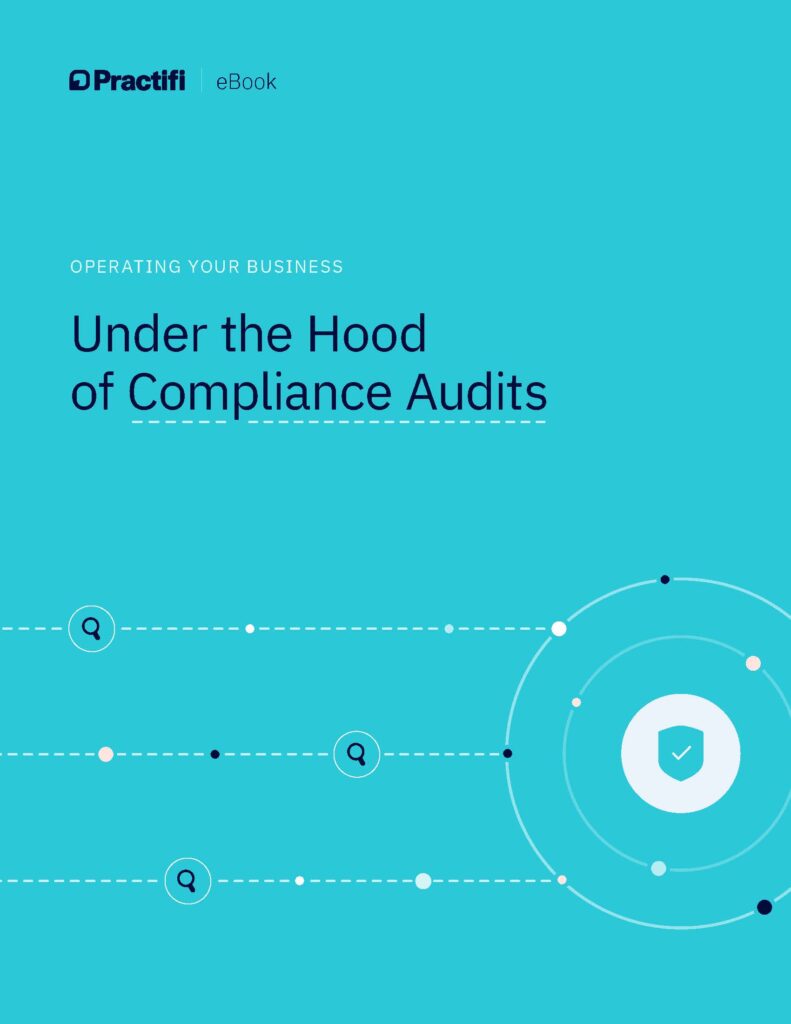
6 Best CRM Features for Financial Advisors 2024
Financial advisory and wealth management firms are built around strong client interactions. This means customer relationship management (CRM) technology is a vitally important technological tool for these businesses.
A wealth management CRM platform gives financial advisors and other team members the ability to access and analyze detailed client data, then use it to nurture strong relationships. Insights about the state of a client’s account, their history with the business and future opportunities to grow their wealth can become clear with an effective CRM.
Ideally, a CRM can act as the centerpiece of a financial advisory tech stack. Advisors can communicate and collaborate with their colleagues within the system, working as a team for the benefit of each client and maximizing the value of every account.
Considering how much of a financial advisor’s day is spent working within a CRM, not just any system will suffice. Firms that want to create high-quality client experiences can start by equipping their advisors with feature-packed CRM platforms specifically built for the financial services space.
What Is a CRM for Financial Advisors?
A CRM system for financial advisors is, ideally, not just a generic, one-size-fits-all CRM system. Instead, this is a piece of technology that suits the duties an advisor and their team will perform. The right technology will unite advisors and other roles within a firm into one platform — all while delivering a tailored experience that surfaces the most relevant client data, automates tasks and workflows, and increases productivity.
Some of the details that define CRM for financial advisors include:
- Relevancy: A CRM system is defined by the information it displays for the user. In the case of CRM for financial advisors, this means dashboards displaying the state of client accounts, high-priority tasks to complete, and more. With this information at their fingertips, advisors can react more quickly to market moves and opportunities, providing more responsive service for each client.
- Role-specificity: Every position within a wealth management firm has its own go-to actions. A CRM system specifically optimized for financial advisor use will include specialized workflows built to accommodate that job’s day-to-day tasks: client onboarding, moving money, opening accounts, setting up client reviews and more.
- Collaborative support: A financial advisor’s role is simpler when an employee can work seamlessly as part of a team. The ideal CRM tool will allow members of every department to share client data efficiently and securely to keep collaboration strong and collectively build client relationships.
- Governance out of the box: Quick workflows can never come at the expense of regulatory noncompliance or insecure data storage. Financial advisor CRM technology, reflecting this need for security, will incorporate secure, compliant data access capabilities.
In short, modern CRMs for financial advisors offer functionalities specifically designed to make these employees’ days easier. Ideally, this CRM platform will automate and streamline digital tasks, so advisors can spend more of their time interacting directly with their clients and deepening relationships.
Benefits of Using a CRM for Financial Advisors
Modernizing a financial advisory firm’s CRM platform is a move that can positively affect the way numerous departments perform their tasks. Advisors aren’t the only ones who will use these solutions, and ideally all teams and departments will have their own specialized capabilities.
Financial advisory firms that commit to an up-to-date CRM solution tailored to their team can expect to unlock benefits including:
- Improved productivity: Common, repeated activities such as setting up a new account or moving money can take up a financial advisor’s time, stopping them from performing extra value-adding work. CRM systems with automation and pre-built workflows for frequent, go-to actions can strengthen task management and put hours back into advisors’ days.
- More personalized service: Client relationship management is the bedrock of a successful financial advisory practice, with every client interaction holding value. Storing important client information in a CRM is a way to make sure advisors always act on knowledge about their clients, and having a central repository of this data helps ensure client retention when longtime advisors leave the company or retire.
- Insights into client behavior: Being a great financial advisor means understanding the best move for a client to make, even before that client does. Data-based insights can guide advisors’ decision-making, helping them both suit client preferences perfectly and make forward-looking recommendations that pay off.
- Optimized revenue potential: Advanced CRM solutions allow financial advisors to act quickly on insights gathered from their clients’ accounts and the market at large. By streamlining and automating day-to-day activities and helping advisors make data-informed decisions, these platforms help advisors serve additional clients while offering more revenue-generating services to existing clients.
- Better prospecting: Growing a client base in a field as personal and relationship-based as wealth management depends on having fast access to client and prospect data. A good CRM system not only ensures the information is consistent, accessible and easy to interpret, but it also helps prospecting teams collaborate with advisors.
In today’s heavily digital and tech-driven business climate, a firm’s choice of CRM system is crucial in staying competitive. The smooth and effective workflows that come with a specialized CRM platform play a crucial role in boosting employees’ day-to-day contributions.
The fact that financial advisory services are heavily client relationship-driven doesn’t mean that organizational leaders can ignore technology. CRM technology, in particular, is designed to help person-to-person relationships flourish by enabling advisors with all the insights and actions they need to connect with their clients.
The 6 Best CRM Features for Advisors
While the holistic experience of using a suitable CRM platform has the potential to transform a financial advisory firm’s capabilities, it’s worth zooming in and taking a close look at the specific key features that help these advisory teams thrive.
Some of these tech capabilities are mainstays of CRM technology, while others are industry-specific, but they’re all meant to make financial advisors’ lives easier. These features include:
- Detailed up-to-date client tracking
The bread-and-butter capability of any CRM tool is its ability to keep and track client records. Storing this information in a centralized database rather than in legacy forms — offline files or paper records — unlocks client data for more effective use.
These records, encompassing everything from personal details and client interaction history to portfolio performance, are valuable for financial advisors and other staff members alike. Up-to-date data can power everyday conversations with clients, building rapport and ensuring that institutional knowledge doesn’t disappear when individual advisors depart.
Visibility should go beyond the record itself to include edit history and change logs. This metadata shows the provenance of any updates and allows financial advisors to trust that they’re working with the latest data, along with historical information that dates back to before the client onboarding process.
- Real-time collaboration
Financial advisors are at their best when they don’t have to work alone. In addition to offering centralized, updated and easily accessible data on clients, the best CRM platforms for financial use offer built-in collaboration features. With these capabilities, financial advisors and members of other teams can seamlessly communicate and address client needs.
The ability to comment directly on client records allows collaborators to be clear and efficient in their teamwork. This level of visibility is more specialized and effective than relying on email or outside chat systems.
Since collaboration is organization-wide, marketers and managers can also contribute and view their colleagues’ work in real-time. This allows all team members to work together and optimize the value of specific clients. In addition to collaborating with advisors, other teams will be able to take advantage of features such as prospecting and lead management, client onboarding and marketing automation.
- Automation capabilities and built-in workflows
Workflow automation is a difference-making feature that can set exceptional CRM systems apart from those that are merely adequate. Boosting task management and productivity via automation, these platforms allow financial advisors to set up repeating, hands-off tasks for alerts, data management and other standard processes.
Rather than requiring heavy, hands-on work from financial advisors, the most effective CRM tools will ensure these workflow automation features are intuitive and easy to use. This ensures that the technology can meet its goal of building employee and organizational effectiveness, rather than introducing new complexities to deal with.
Built-in automated workflows represent another feature that defines best-in-class financial CRM technology. Since the tasks and duties associated with the financial advisory space are unique, these capabilities are only available with tech platforms built specifically for financial planning and wealth management. Built-in automated workflows make everyday tasks easier out of the box, saving time and effort immediately.
4. Analytics and reporting
Running sophisticated analysis and receiving easy-to-interpret results doesn’t have to be a deeply involved process when a financial advisor has access to the right technology tools. A CRM solution built for wealth management can deliver high-quality dashboards and reports that directly target advisors’ needs.
Analytics capabilities don’t have to be limited to what’s available out of the box. Industry-leading CRM platforms for financial advisory firms will allow users to connect additional apps and modules to build their reporting and analytics capabilities. Whether advisors are creating reports for their own use, explaining opportunities to their clients or presenting to their colleagues, advanced analytics integration can help them get the job done.
Since optimized financial advisory CRM platforms are usable by many stakeholders throughout an organization, it’s also worth mentioning report types that go beyond advisors themselves. For instance, departmental leaders can monitor the success of their teams in real-time, while sales teams can stay informed of their own progress and opportunities.
- APIs and module Intergration
Business intelligence is far from the only capability available through integration. Adding modules and apps to a CRM deployment can put new capabilities at financial professionals’ fingertips. These can be as simple as Gmail and Google Docs integration or as complex as access to artificial intelligence algorithms.
With add-on apps, modules and capabilities, wealth management organizations can customize the experience for their advisors and other team members. Each add-on lets employees accomplish more tasks to help their teammates and clients. Calendar reminders about important life events, automatic marketing email sends and in-app SMS sends are among the new actions available.
There’s more than one way to customize a financial CRM deployment. Some new features could come from apps on a standardized marketplace such as the Salesforce AppExchange. Others may be custom integrations built through development partnerships. Still, others are available through an API interface, which allows purchasers to add capabilities for free.
- Cloud access and mobility
Easy, efficient access to a CRM platform can deliver real value today. When a financial advisor has access to a fully featured CRM experience on the go, whether by logging on securely from an unfamiliar computer or accessing a mobile app, they can accomplish more for their clients, delivering value-adding work from anywhere.
In today’s tech marketplace, cloud-based design is the accepted standard. A solution built on a reliable cloud framework enables scaling up when the organization grows or needs additional capacity. Combined with the ease and security of automatic updates, it’s clear why companies trust the cloud.
In previous decades, flexible access to software was a nice-to-have feature. Now, with hybrid and remote work more popular than ever and following years of forced work-from-home brought on by lockdowns, it’s essential. The leading CRM platforms built for general business use follow this model, and the specialized options created for the financial advisory sector are no different.
Beyond possessing a full feature set now, the best CRM solution will have another important trait — room to grow. As the general state of technology in the financial services industry and beyond evolves, the best CRM platforms will change along with it.
New features and capabilities are the lifeblood of effective business technology, and thanks to the cloud deployment model, it’s easier than ever for CRM systems to receive fresh updates. Such upgrades may be core features or optional expansions, but in each case, the value proposition is the same: Companies can refresh how they manage their client relationships without a full CRM refresh.
In the years ahead, for example, developers are poised to deploy new and more advanced AI analysis capabilities. Financial advisory firms using CRM platforms that are easy to update and expand will be able to tap into new functionality more seamlessly than those with less adaptable systems.
How to Maximize Your CRM Technology
Successful CRM use in the financial advisory space means implementing a solution that includes the key features, along with the potential for upgrades. It also involves more than that. A company’s chosen platform should come with ongoing support from a team of experts who understand the technology and the financial services industry as a whole.
CRM is too complex, varied and central to be treated as a simple plug-and-play technology implementation. Rather, a wealth management firm should treat a change in CRM as a chance to rethink and optimize its workflows and plan accordingly.
More specifically, traits to look for in a financial CRM software provider include:
- Client-centricity: In both its current feature set and its future plans, a CRM provider should focus on the needs of its clients. This means listening to the wealth management firms that make up its user base and rolling out the capabilities that are most relevant to those organizations’ needs.
- Industry focus: The unique circumstances affecting the financial services field, ranging from the nature of client relationships and portfolio management needs to specific regulatory requirements and beyond, call for highly specific solutions. A CRM provider focused on the challenges and demands of the finance world is the best partner for companies in this industry.
- Helpful support team: When working with a hands-off CRM provider, advisory firms may feel the need to bring in third-party consultants, adding another layer of complexity. The best CRM platform developers will provide attentive and knowledgeable service to build and maintain ideal, customized deployments, removing the need for third parties.
Since changing CRM systems is a momentous shift in the way a company operates, it’s important to get this process right the first time. Selecting a suitable CRM provider means starting a fruitful, years-long relationship and evolving together, rather than periodically starting the process over again.
Practifi offers this idealized experience, helping financial advisory organizations make the most of their CRM capabilities and delivering an industry-leading feature set that will bring the best out of every individual advisor and their teams.
A partnership with Practifi brings a level of capabilities and service that takes the pressure off of financial advisory teams and lets them get back to what they do best — serving their clients and growing the business. Learn more about our product or book a demo today.










